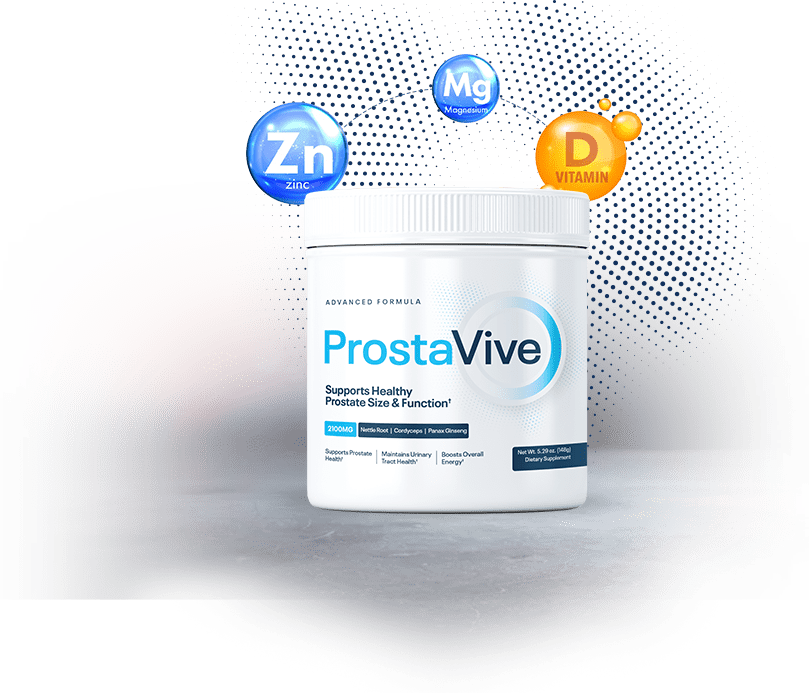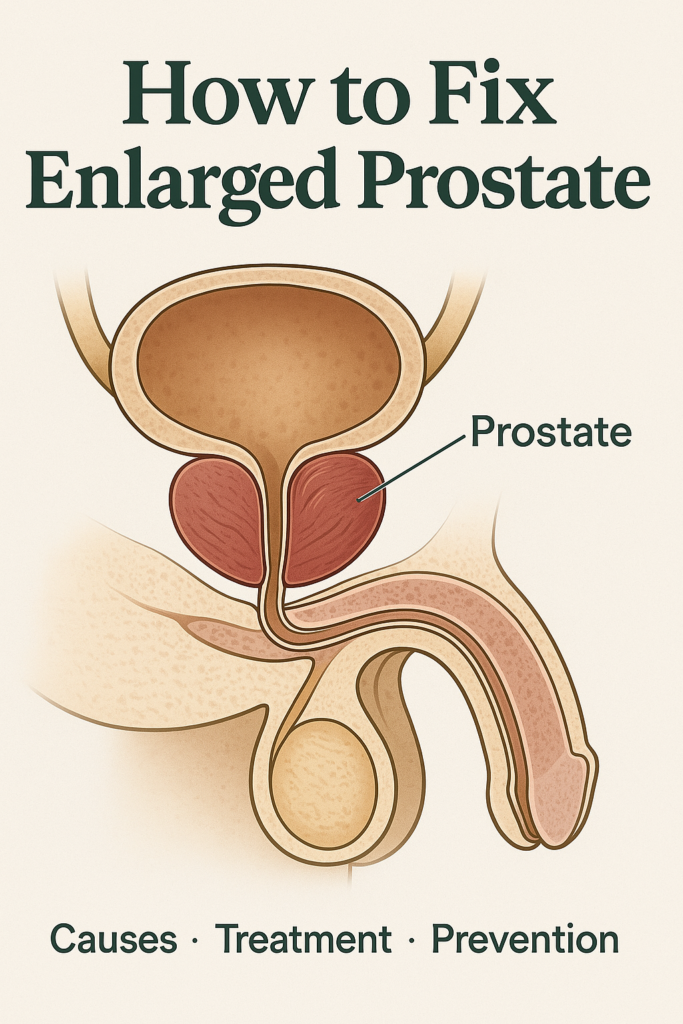How To Lower Prostate PSA Levels

Understanding how to lower prostate PSA levels naturally is crucial for men aiming to maintain optimal prostate health and potentially avoid complications. Prostate Specific Antigen (PSA) is a protein produced by both cancerous and noncancerous tissue in the prostate, a small gland that sits below a man’s bladder. Elevated PSA levels can be a warning signal, highlighting the need for proactive measures to naturally manage these levels and ensure overall well-being.
PSA is an important marker in diagnosing and monitoring prostate conditions, including prostate cancer. Higher-than-normal PSA readings might indicate the presence of prostate cancer, benign prostatic hyperplasia, or inflammation of the prostate, making it essential for men to routinely evaluate their PSA levels. Although rising PSA numbers can cause concern, there are effective and natural ways to address this issue through dietary changes, lifestyle modifications, and regular health screenings.
This article will guide you through understanding PSA levels and their significance, explore dietary and lifestyle strategies, emphasize the importance of medical consultations, and introduce ProstaVive, a natural supplement designed to support prostate health. By making informed decisions, you can confidently take charge of your prostate health and lower your PSA levels naturally.
Understanding PSA Levels
Prostate-specific antigen (PSA) levels are a critical factor in monitoring prostate health and identifying any underlying issues that could lead to prostate-related diseases. The significance of understanding how to lower prostate PSA levels naturally is emphasized by the growing awareness around prostate health and the associated risks, including prostate cancer. Regular monitoring of PSA levels can help men catch potential issues early and maintain a better quality of life. Natural methods such as maintaining a healthy diet, regular exercise, and reducing stress have been shown to lower PSA levels, which can be beneficial in managing and reducing the risk of serious prostate conditions.
What is PSA?
Prostate-specific antigen (PSA) is a protein produced by both normal and malignant cells of the prostate gland. When healthcare providers measure PSA levels, they are assessing the concentration of this protein in the blood. This measurement is used to monitor prostate health and screen for prostate-related issues, such as an enlarged prostate or potential prostate cancers. A simple blood test provides insight into the PSA levels, and these levels can be influenced by various factors, including age and the presence of prostatic hyperplasia. Knowing how to lower prostate PSA levels through natural means can be crucial for sustaining prostate health and reducing the risk of escalation in conditions.
Why PSA Levels Matter
Elevated PSA levels can be an indicator of prostate issues, including prostatic hyperplasia or even more serious concerns like prostate cancer. It is essential to maintain these levels within a healthy range to effectively minimize risks. Persistently high PSA levels may lead to further diagnostic procedures like a prostate biopsy, which can confirm the presence of cancer cells. Thus, individuals must understand the importance of lowering their PSA levels. Knowing how to lower prostate PSA levels naturally, through lifestyle adjustments such as adopting a balanced diet rich in cruciferous vegetables and exercising regularly, can significantly impact overall prostate health and decrease the risk of advanced prostate cancer. Keeping PSA levels in check helps in early diagnosis and improves overall prognosis by potentially reducing the need for aggressive treatments such as hormone or radiation therapy down the line.
Struggling to understand your PSA levels? ProstaVive supports prostate health naturally—helping regulate PSA and reduce inflammation without harsh treatments.
Dietary Changes for Lowering PSA

Prostate-specific antigen (PSA) is a protein produced by both normal and malignant cells of the prostate gland, and its levels can be an important marker when it comes to evaluating prostate health. Elevated PSA levels can indicate issues ranging from benign prostatic hyperplasia to prostate cancer, making them a significant concern for men’s health. Many individuals seek out natural strategies to maintain optimal PSA levels and support overall prostate health. One effective approach is through dietary modifications. Understanding how to lower prostate PSA levels through diet naturally involves incorporating certain foods into daily meals and avoiding others that might contribute to increased levels. A well-planned diet not only promotes better prostate health but can potentially reduce the risk of prostate cancer and improve quality of life.
Incorporate Tomatoes and Lycopene-rich Foods
Lycopene, a powerful antioxidant found in tomatoes and other red fruits, has been linked to lower prostate PSA levels naturally, making it an essential component of a prostate-friendly diet. This antioxidant is believed to protect against cell damage and inflammation, which can contribute to elevated PSA levels. By including tomatoes, watermelon, pink grapefruit, and guavas in your meals, you can help maintain lower PSA levels. These lycopene-rich foods provide an easy way to naturally reduce PSA, offering a delicious and effective strategy for prostate health.
Increase Fruit and Vegetable Intake
Increasing the intake of fruits and vegetables is another key strategy for how to lower prostate PSA levels with nutrition. These foods are rich in antioxidants and fiber, both of which play important roles in maintaining prostate health. Antioxidants help combat oxidative stress, while fiber promotes digestion and the removal of toxins from the body. A diet abundant in a variety of fruits and vegetables such as berries, leafy greens, and cruciferous vegetables can provide the necessary nutrients to support prostate function and potentially lower PSA levels.
Reduce Dairy Consumption
The consumption of dairy products has been observed in some studies to have a potential link to higher PSA levels and an increased risk of prostate issues. To lower prostate PSA levels naturally, consider reducing the amount of dairy in your diet. Transitioning to plant-based alternatives like almond or soy milk can help minimize dairy intake. Additionally, opting for nutrient-rich, non-dairy sources of calcium such as leafy greens and fortified cereals can further support prostate health without the potential drawbacks associated with dairy consumption.
Drink Green Tea Regularly
Green tea is renowned for its anti-inflammatory properties and has been studied for its potential role in managing PSA levels. Regular consumption of green tea has been shown to help how to lower prostate PSA levels with green tea due to its rich content of catechins, a type of antioxidant that may reduce the risk of developing prostate cancer. By incorporating a few cups of green tea into your daily routine, you can benefit from its soothing qualities and also potentially maintain healthier PSA levels.
Importance of Vitamin D
Vitamin D plays a crucial role in prostate health, and a deficiency in this vital nutrient may negatively impact PSA levels. Ensuring sufficient intake of vitamin D is therefore important for how to lower prostate PSA levels and support overall prostate health. Sun exposure is a natural way to boost vitamin D levels, but diet can also help. Foods rich in vitamin D, such as fatty fish, egg yolks, and fortified dairy alternatives, should be part of your routine to prevent deficiency and uphold healthy PSA levels. Being proactive about vitamin D can provide long-term benefits for maintaining a healthy prostate.
Combining a healthy diet with natural supplements like ProstaVive may significantly help reduce PSA levels and support urinary comfort.
Lifestyle Modifications

Understanding how to lower prostate PSA levels through lifestyle habits is crucial for maintaining prostate health. Prostate-specific antigen (PSA) levels are a significant marker used in the screening for prostate cancer and other prostate conditions. Elevated PSA levels can indicate various issues, including prostate cancer, prostatic hyperplasia, or even urinary tract infections. By adopting specific lifestyle modifications, men can naturally reduce their PSA levels, potentially decreasing the risk of prostate cancer and improving overall quality of life. It’s not only about keeping PSA levels in check but also promoting a healthy and vibrant lifestyle.
Maintain a Healthy Weight
Obesity has been linked to elevated PSA levels, and maintaining a healthy weight might effectively decrease these levels naturally. Excess body mass not only contributes to an increased risk of prostate cancers but can also worsen urinary symptoms associated with an enlarged prostate. Weight loss through a balanced diet rich in fruits, vegetables, and whole grains can help lower body mass and, consequently, PSA levels. A healthy diet, particularly one that includes cruciferous vegetables like broccoli and cauliflower, may offer protective benefits for prostate health. By focusing on weight management, men can achieve the lowest levels of PSA and enhance their overall well-being.
Engage in Regular Exercise
Regular exercise is a powerful tool in how to lower prostate PSA levels naturally. Activities such as walking, swimming, or even light jogging can significantly benefit PSA levels by improving cardiovascular health and reducing inflammation. These exercises help maintain an ideal body mass and promote a healthy prostate. Engaging in moderate physical activity for at least 30 minutes a day can make a noticeable difference in PSA levels and contribute to overall prostate health. Consistent exercise not only supports weight management but can help in the active surveillance of prostate health by lowering the risk of more aggressive diseases like advanced prostate cancer.
Practice Mindfulness and Stress Reduction
Practicing mindfulness and stress reduction techniques is another effective approach to managing PSA levels. Chronic stress can lead to increased PSA levels and may exacerbate the risk of prostate cancer. Techniques such as yoga, meditation, and deep breathing exercises have been shown to help reduce stress and improve mental health. By focusing on stress reduction practices, men can influence how to lower prostate PSA levels effectively. These methods may also improve quality of life and aid in maintaining a balanced mental state, contributing to better prostate health outcomes over time. Mindfulness practices not only manage stress but can potentially aid in preventing prostatic hyperplasia and other related conditions.
Daily habits matter. Many men have added ProstaVive to their wellness routines to naturally manage PSA levels and improve urinary flow.
Regular Screenings and Healthcare Discussions

Understanding how to lower prostate PSA levels naturally is crucial for maintaining optimal prostate health. The PSA, or prostate-specific antigen, is a protein produced by the prostate gland, and its levels are often used to screen for prostate health issues, including prostate cancer. Elevated PSA levels can indicate conditions such as prostatic hyperplasia, urinary symptoms, or even advanced prostate cancer, making regular screenings an essential part of preventive health care. By engaging in consistent screenings and open healthcare discussions, men can detect changes early and explore various natural strategies to manage their PSA levels effectively.
The Importance of Regular PSA Screenings
Regular PSA screenings are vital for early detection and management of prostate health issues. Elevated PSA levels might indicate the presence of slow-growing cancer, enlarged prostates, or other conditions that require timely intervention. By undergoing consistent PSA checks, men can ensure that any significant changes are promptly monitored and addressed, reducing the risk of developing aggressive forms of prostate cancer.
Screening for prostate cancer through regular PSA tests provides a baseline that can help track any changes over time. This proactive approach allows for early detection, which is pivotal in opting for the most appropriate and least invasive interventions. An effective strategy for how to lower prostate PSA levels involves consistent screening, as it provides crucial information that can guide lifestyle adjustments and other preventive measures.
Consult with Healthcare Professionals
Regular consultations with healthcare professionals are an integral component of managing PSA levels. A doctor can provide personalized advice on how to lower prostate PSA levels under medical supervision, ensuring safe and effective approaches tailored to individual health needs. It is important to discuss any family history of prostate cancer, current health status, and specific symptoms during these consultations.
Engaging openly with healthcare providers helps in understanding the full spectrum of prostate health. Men should ask about the implications of their PSA results, discuss the benefits of a balanced diet rich in cruciferous vegetables, and consider other lifestyle factors such as body mass management and exercise. Questions about the potential need for a prostate biopsy or the suitability of active surveillance and screening methods should also be addressed.
Through these discussions, patients can make informed decisions about their prostate health, exploring options like dietary changes, clinical trials, or hormone therapy if necessary. Consulting with healthcare professionals ensures that men receive comprehensive care, supporting improved quality of life and informed management of prostate health concerns.
Pair regular check-ups with the consistent use of ProstaVive to stay ahead in your prostate health journey—naturally and confidently.
Understanding the Limitations of PSA Tests

Prostate-specific antigen (PSA) tests are crucial for evaluating prostate health, as they measure the level of PSA, a protein produced by both cancerous and noncancerous tissue in the prostate. Elevated PSA levels can signal prostate issues, typically prompting further testing to determine the risk of prostate cancer or other conditions like benign prostatic hyperplasia. However, understanding how to lower prostate PSA levels naturally is essential, given the limitations and potential inaccuracies of PSA tests. These tests are not infallible, often leading to false positives, indicative of cancer when none exists, or false negatives, missing a diagnosis of prostate cancer. Therefore, a comprehensive approach that combines lifestyle changes with medical guidance is recommended to effectively manage prostate health.
Recognizing False Positives and Negatives
False positives and negatives in PSA tests can significantly impact the diagnosis and management of prostate health. A false positive occurs when a test indicates a high PSA level, suggesting prostate cancer when, in fact, the patient does not have the disease. Conversely, a false negative means the test results show normal PSA levels even though cancer is present. Numerous factors, such as age, inflammation, urinary tract infections, and even recent ejaculation, can influence PSA levels, potentially skewing test results. This unpredictability leads to unnecessary anxiety and additional tests, such as biopsies. Therefore, understanding how lifestyle choices, such as maintaining a balanced diet rich in cruciferous vegetables and managing body mass, can influence PSA levels is critical for reducing the risk of prostate cancer and interpreting PSA test results accurately.
When to Seek Additional Testing
When PSA test results are ambiguous, it is essential to know when to pursue further diagnostic measures. Elevated PSA levels, particularly those that persist or rise over time, may necessitate additional testing, such as a prostate biopsy or imaging studies like MRI scans. These tests provide a more comprehensive view of the prostate, helping confirm or rule out advanced prostate cancer. Urological referrals are also recommended for men with a history of prostate cancer or those experiencing bothersome urinary symptoms. Comprehensive prostate cancer screening, including evaluating risk factors like family history and age, can help determine how to lower prostate PSA levels through complete diagnosis and tailored treatment plans. By collaborating with healthcare providers, men can ensure they receive thorough evaluations to guide appropriate interventions, whether through active surveillance, lifestyle adjustments, or other treatment modalities.
Don’t rely on testing alone. ProstaVive offers daily support for prostate health so you can act early and stay in control.
Why You Should Consider ProstaVive for Prostate Health
Navigating the complexities of prostate health inevitably brings PSA levels into focus, given their critical role in screening for prostate cancer and monitoring prostate health. Many men are searching for ways to support their prostate naturally, and ProstaVive emerges as a powerful ally in this journey. The supplement blends cutting-edge scientific research with natural ingredients, offering a potent solution for those wondering how to lower prostate PSA levels naturally. ProstaVive’s formulation supports not just lower PSA levels but also enhances overall prostate function, potentially reducing the risk of more serious conditions like prostate cancer.
A Natural Formula Backed by Science
ProstaVive is not just any supplement; it is a result of meticulous scientific exploration aiming to provide natural prostate health support. The cornerstone of its efficacy includes key ingredients like Saw Palmetto, Lycopene, Beta-Sitosterol, and Pumpkin Seed Oil. Saw Palmetto is renowned for its ability to reduce inflammation and support urinary function. Lycopene, found abundantly in tomatoes, is a powerful antioxidant that aids in managing PSA levels and maintaining healthy prostate tissue. Beta-Sitosterol is known to enhance urinary flow and address symptoms associated with an enlarged prostate, while Pumpkin Seed Oil contributes to regulating inflammation and supporting prostate function.
Scientific studies have consistently highlighted these ingredients’ roles in combating inflammation and optimizing prostate health. Together, they form a formidable defense against rising PSA levels and associated urinary symptoms, helping manage the risk of prostate cancer more effectively. ProstaVive doesn’t just aim for temporary relief but offers a comprehensive approach to long-term prostate health preservation.
What Makes ProstaVive Stand Out?

In a saturated market of prostate supplements, ProstaVive distinguishes itself with an unmatched commitment to quality and efficacy. Its clean ingredient profile ensures that every component is natural, with no synthetic additives that potentially compromise health. This purity, combined with a sophisticated liposomal delivery system, allows for maximal absorption, ensuring that your body receives the full benefits of each ingredient.
Furthermore, ProstaVive is manufactured in FDA-compliant facilities, adhering to the highest safety and quality standards. This rigorous attention to detail reassures users about the product’s integrity and effectiveness. The confidence ProstaVive has in its offering is evident in its comprehensive 180-day money-back guarantee, an unprecedented risk-free offer that underscores its efficacy and trustworthiness.
Take Control of Your Prostate Health Today
In the realm of health, timing is everything, and action taken today significantly influences tomorrow. Don’t wait for symptoms to worsen before taking vital steps towards better prostate health. ProstaVive is trusted by thousands as a proactive measure against potential prostate issues, enabling users to maintain a robust quality of life.
By integrating ProstaVive into your daily regimen, you are making a conscious decision to prioritize health and vitality. This path can lead to reduced PSA levels and an enhanced sense of well-being. Empower yourself with the confidence and peace of mind that comes from proactive health management. Embrace ProstaVive, make it your partner in health, and take the necessary steps to secure a healthier future now.
Ready to Take the Next Step?
ProstaVive is trusted by thousands of men worldwide for its ability to naturally support PSA levels and prostate function. Backed by research and formulated with potent botanicals, it could be your path to a healthier life.







